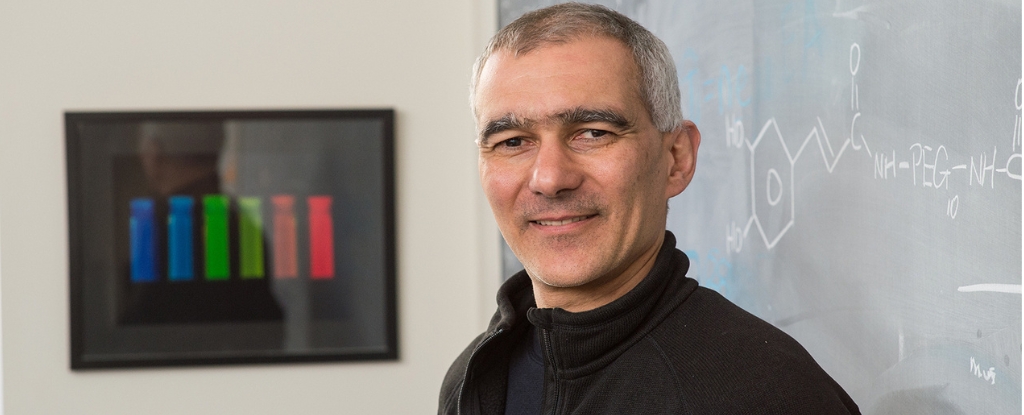Products You May Like
MIT professor Moungi Bawendi is a co-winner of this year’s Nobel chemistry prize for helping develop “quantum dots” – nanoparticles that are now found in next generation TV screens and help illuminate tumors within the body.
But as an undergraduate, he flunked his very first chemistry exam, recalling that the experience nearly “destroyed” him.
The 62-year-old of Tunisian and French heritage excelled at science throughout high school, without ever having to break a sweat.
But when he arrived at Harvard University as an undergraduate in the late 1970s, he was in for a rude awakening.
“I was used to not having to study for exams,” he told reporters Wednesday, adding that he was intimidated both by the enormous size of the hall and the stern presence of a proctor.
“I looked at the first question and I couldn’t figure it out, and the second question I couldn’t figure it out,” he remembered.
In the end, he scored 20 out of a 100, the lowest grade in his entire class.
“And I thought, ‘Oh my god, this is the end of me, what am I doing here?'”
Though Bawendi loved chemistry, he realized he hadn’t learned the art of preparing for exams, something he quickly set about rectifying.
“I figured out how to study, which I didn’t know how to do before” he said, and after that “it was 100s on every exam, pretty much.”
His message for young people is simple: “Persevere,” and don’t let setbacks “destroy you.”
“It could easily have destroyed me, my first experience with an F, the lowest grade in my class by far,” he added.
Quantum dots are nanoparticles so tiny their properties, including color, are governed by quantum mechanics.
Though he didn’t discover them, Bawendi revolutionized the techniques to manufacture them with precision and at scale, paving the way for their applications today.
